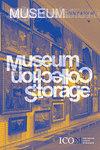The Plunder of Maqdala: Ethical Concerns Around Belongings and Ancestral Remains in Museums
IF 0.4
4区 艺术学
0 ART
引用次数: 0
Abstract
Abstract During the colonial period, museums did not just passively benefit from the plunder of human remains and culturally sacred items. When Britain sent a punitive military expedition to Abyssinia (now Ethiopia) in 1863, it was accompanied by Richard Holmes, a staff member of the British Museum, whose purchase of loot from the expeditionary force institutionalised the plunder of cultural heritage. His inclusion in the expeditionary force was carefully planned, though the belongings he took — mainly manuscripts, religious items and emblems of power belonging to the Ethiopian royal family — were not the intended focus of his participation. Whilst the UK’s 2004 Human Tissue Act had a beneficial impact on the treatment of human remains in museums, objects belonging to colonised people are often still positioned as artworks or artefacts, evidencing ignorance of the deep personal and spiritual links that connect them back to their communities of origin. This article draws on our professional experience of curation and research in museums and libraries, as well as the impact of ICOM’s new Museum Definition on our practice. Joint research on the Maqdala expedition led us to question assumptions about the legacy of empire in museums and to scrutinise unexpected connections in the history of museum collections. This article addresses the problematic relationship between collecting and imperial power, the false dichotomy between ‘artefacts’ (belongings) and ‘human remains’ (ancestors) and the need to decolonise collections through further research and the recognition of ongoing cultural and physical violence.Maqdala的掠夺:对博物馆中的归属和祖先遗骸的伦理关注
摘要在殖民时期,博物馆不仅仅被动地从人类遗骸和文化圣地的掠夺中受益。1863年,当英国向阿比西尼亚(现埃塞俄比亚)派遣惩罚性军事探险队时,大英博物馆的工作人员理查德·霍姆斯陪同,他从远征军那里购买战利品,使对文化遗产的掠夺制度化。他加入远征军是经过精心策划的,尽管他携带的物品——主要是手稿、宗教物品和埃塞俄比亚王室的权力象征——并不是他参与的重点。虽然英国2004年的《人体组织法》对博物馆处理人类遗骸产生了有益影响,但属于殖民地人民的物品通常仍被定位为艺术品或手工艺品,这表明他们对将他们与原籍社区联系在一起的深层个人和精神联系一无所知。本文借鉴了我们在博物馆和图书馆策展和研究的专业经验,以及ICOM新的博物馆定义对我们实践的影响。对马克达拉探险队的联合研究使我们对博物馆中帝国遗产的假设提出了质疑,并仔细研究了博物馆藏品历史上的意外联系。本文通过进一步研究和承认正在发生的文化和身体暴力,解决了收藏与皇权之间的问题关系,“文物”(物品)和“人类遗骸”(祖先)之间的错误二分法,以及藏品非殖民化的必要性。
本文章由计算机程序翻译,如有差异,请以英文原文为准。
求助全文
约1分钟内获得全文
求助全文
来源期刊

MUSEUM INTERNATIONAL
ART-
CiteScore
0.60
自引率
0.00%
发文量
0
期刊介绍:
In its new revised form Museum International is a forum for intellectually rigorous discussion of the ethics and practices of museums and heritage organizations. The journal aims to foster dialogue between research in the social sciences and political decision-making in a changing cultural environment. International in scope and cross-disciplinary in approach Museum International brings social-scientific information and methodology to debates around museums and heritage, and offers recommendations on national and international cultural policies.
 求助内容:
求助内容: 应助结果提醒方式:
应助结果提醒方式:


